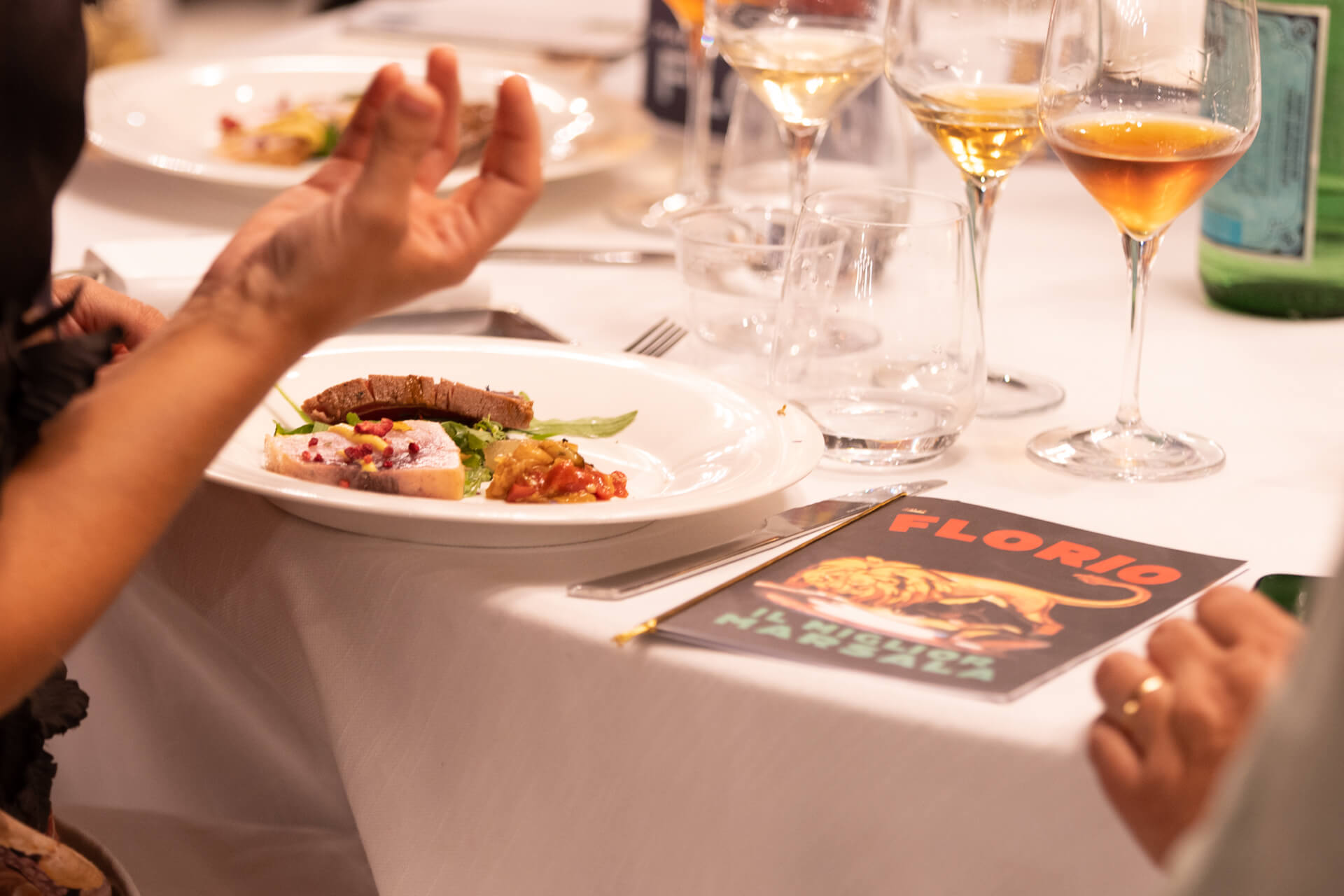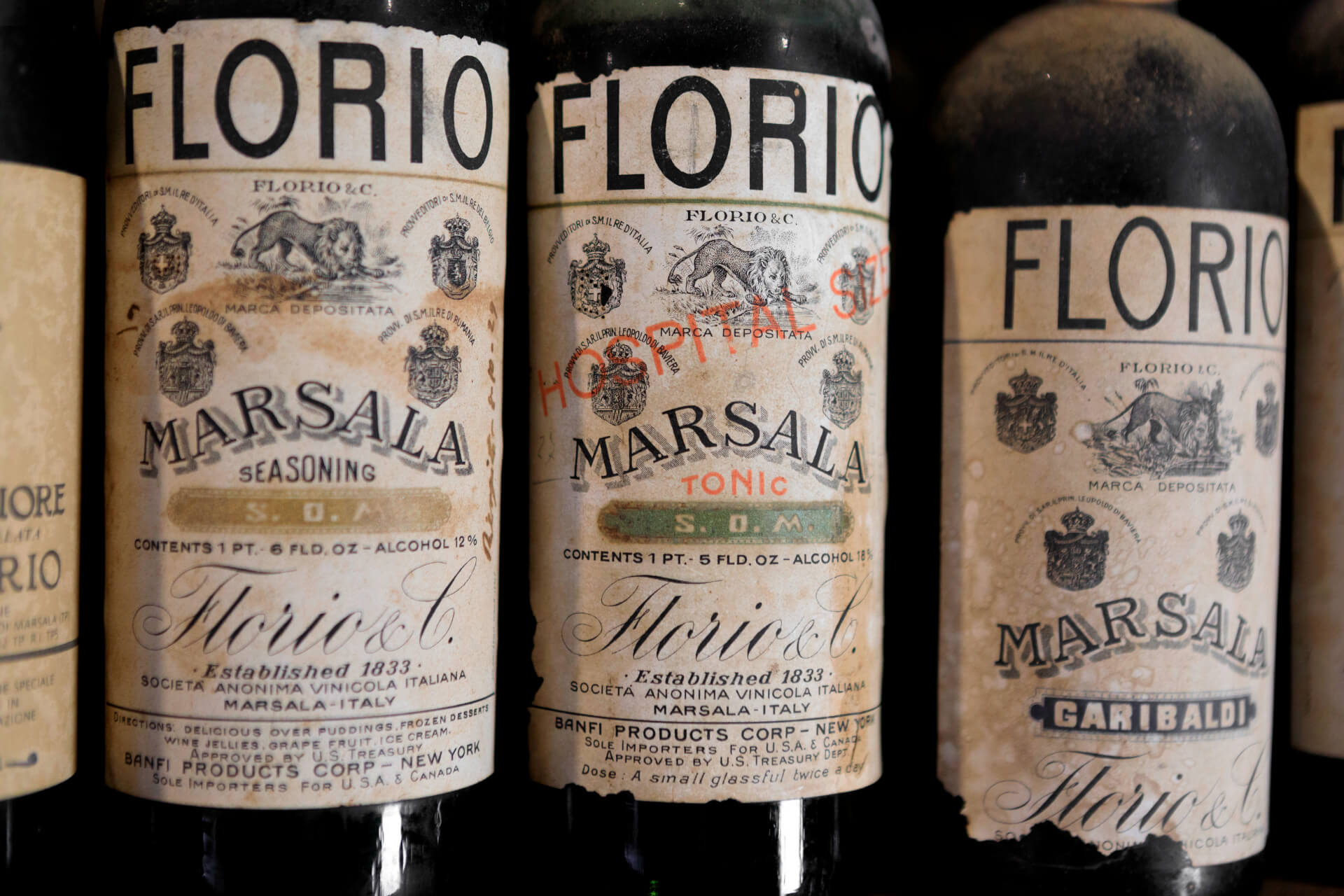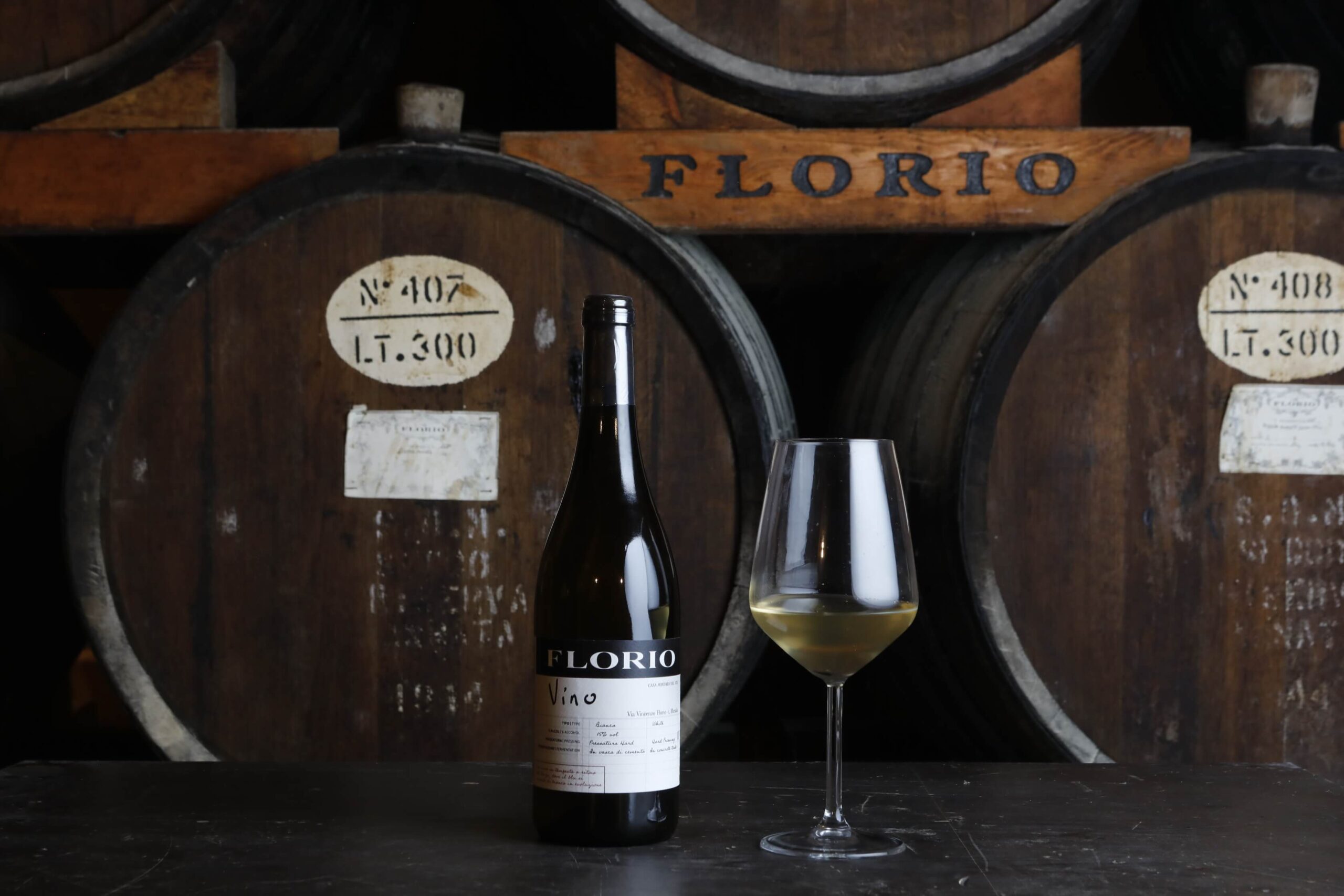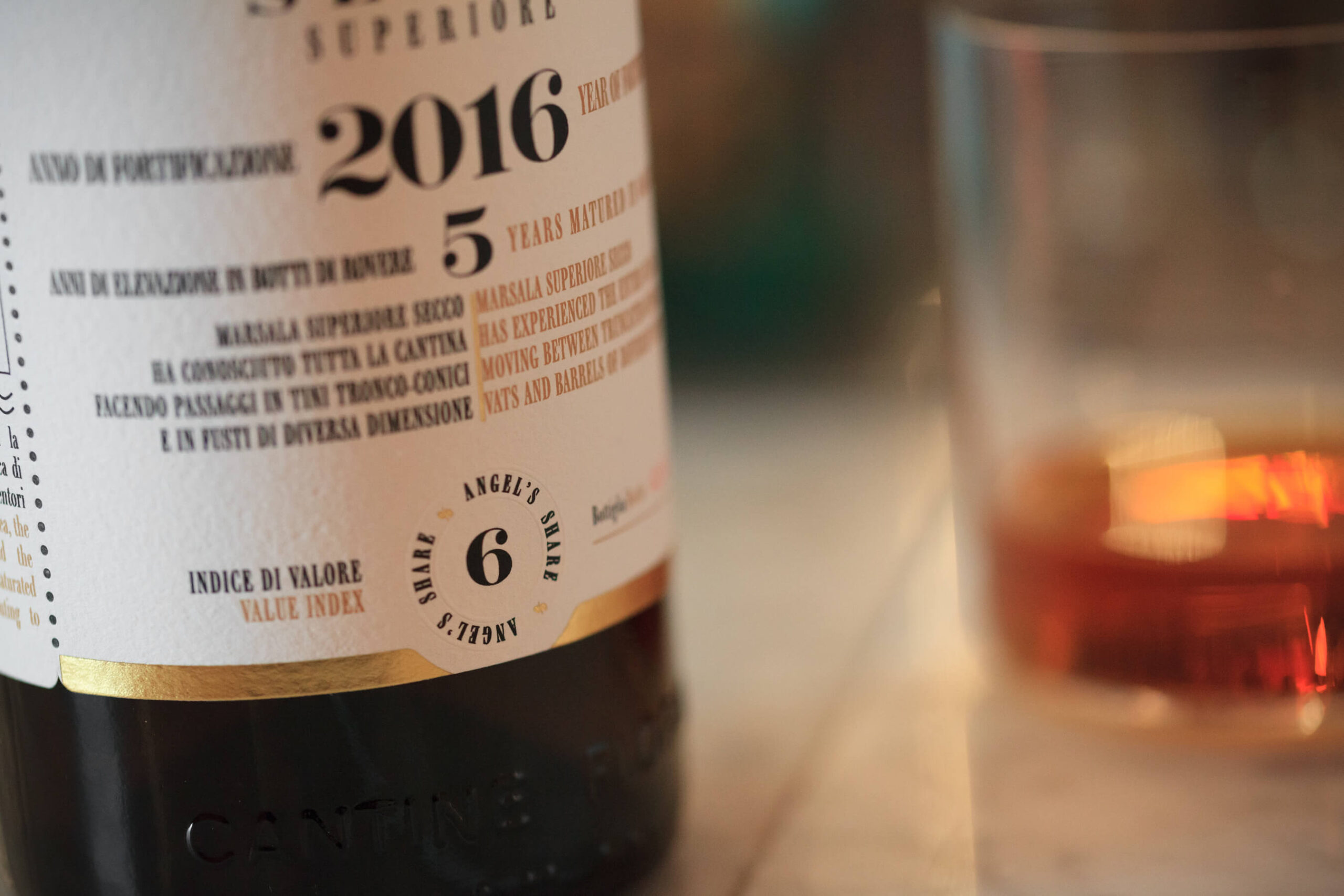Florio and the British origins of Marsala
The winemaking world is full of interesting stories and the Marsala story is an extraordinary example.
Although Marsala wine now represents the Sicilian winemaking tradition, its history is inextricably linked with that of Great Britain. Read on and discover why!
Marsala, the Sicilian wine that speaks English
Many colourful legends recount the origin of Marsala wine, most of them passed down by word of mouth. The Florio archives, instead, provide more reliable historical information, albeit fragmented as they were damaged during World War II.
One thing we know for certain is that the origin of it all lies on the coast of Marsala, a place that has always welcomed merchants and adventurers from the farthest corners of the world.
Here, the Phoenicians laid the foundations of viticulture in Sicily in ancient times. It was also here that the British merchant John Woodhouse, the man who shaped the destiny of Marsala, arrived in 1773.
Woodhouse landed in the port of Marsala and visited the port taverns to sample a local wine aged in oak barrels, which the Sicilians used for special occasions.
Naturally, he instantly fell in love with it. He was so impressed with it that he decided to import some barrels to England, but added a good dose of brandy to it so that the wine would not perish during the crossing.
We cannot know for certain whether this ‘addition’ was for the sole purpose of preserving the wine or whether, as suggested by the historian Rosario Lentini, it was due to a specific desire to apply the ‘concia’ practice to Sicilian wines so that they would be more palatable to their consumers.
Anyway, the scrupulousness with which the quantities and doses of alcohol are reported in the sources available to us suggests that Marsala wine was not the outcome of a stroke of luck, but the result of a winning formula.
Woodhouse bought 60 barrels containing 412 litres of Sicilian wine. Their arrival in England was greeted with surprising approval, but the most resounding success was to come a few years later.
A contract that is still preserved in the Florio wine cellars, dated 19 March 1800, shows that Admiral Horatio Nelson, a hero of the British navy, ordered 500 pipes (400-litre barrels) of Marsala, choosing it for his fleet: Admiral Nelson wrote to his commander saying that it was, ‘so good that it is worthy of any gentleman’s table,and will be a manna from heaven for our sailors’.
The scenario described so far very clearly shows us the British origins of Marsala, the insight of a foreign entrepreneur that led to Sicily’s vocation for winemaking and producing a special wine, thanks to the quality of its vines, the power of its sun and the scents of its sea.
Woodhouse’s goal was to obtain a fortified wine similar to Port or Madeira, which was so popular among his countrymen that he called his new creation ‘wine for Madeira’ or ‘Sicily Madeira’. He was not, however, the only one to seize the commercial potential of Marsala, whose fame soon brought other Englishmen, such as Benjamin Ingham and the Whitakers, to the island. They were determined not only to make it but also perfect its production.
The fact that the British understood the importance of developing the Marsala trade, starting with improving the production environment, can be deduced from a significant fact: in the cemetery that the Woodhouse family commissioned inside the ‘baglio’, the first tomb bore the name of John Christian, who was a cooper by trade. This is genuine proof of the British people’s desire to establish high-level production, also by choosing professionals responsible for improving all the technological, oenological and logistical aspects of Marsala production.
It is also believed that John Woodhouse Junior used to ride around the Trapani countryside on a donkey in search of the best local wines, and giving advice on winemaking. The fact borders on legend, but more documented is the work of Benjamin Ingham, who, from 1830 onwards gave precise instructions to his suppliers to improve the quality of their musts. In 1837, his guidelines were incorporated in a circular letter entitled ‘ Brief instructions on grape harvesting to improve the quality of wines’.Yet he was still unaware of the entrepreneurial potential of an Italian, Vincenzo Florio, who would soon change the fate of Marsala wine forever.
The change of direction for Marsala wine with Vincenzo Florio
Also having arrived by sea, from Bagnara Calabra, Vincenzo Florio purchased a plot of land by the beach situated between the Ingham and Woodhouse families’ manor farms, where he built the Florio wine cellars. It was a truly contemporary winery, fitted with the best equipment available at the time, where the Florio family would go on to produce high-quality Marsala.
When the wine cellars were established in 1833, a new era began for the city of Marsala, which would soon become one of Sicily’s richest and most modern centres. Vincenzo Florio did not appear to be intimidated by his British rivals. On the contrary, he considered he had an advantage with the means at his disposal.
With the fleet of merchant ships owned by the Florio family and the considerable capital accumulated through the spice trade, the tuna fisheries and the sulphur industry, the Marsala made by the Florio family began to undermine the British monopoly. They started supplying European and American markets, but above all changing course to conquer the Italian market, one completely ignored by the British. Marsala wine soon became the most popular pairing for desserts among wealthy families.
In the 1850s, Italian Marsala finally outstripped British competition, mainly due to this talented family of entrepreneurs, whose history spans more than a century of success, not only in trading.
As undisputed protagonists of the Sicilian Belle Époque, the Florio family are linked to the cult of beauty, to banquets, motor racing with the Targa Florio, Art Nouveau villas, the charm of Donna Franca Florio, the ‘Queen of Palermo’, which revitalised the city’s cultural life and made it an international benchmark for European elites.
The Florio family’s entrepreneurial history is one of modernity and innovation, which changed the economic and cultural image of the island forever.
The Marsala wine cellars are a vibrant expression of this and, still today, continue with their pioneering spirit, turning it into innovative, modern and forward-looking winemaking.
If you are curious and want to treat yourselves to an unforgettable moment with these Sicilian gems of British origin, you can find all Florio Marsala wines on Duca.Store



